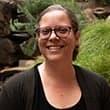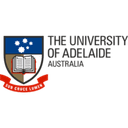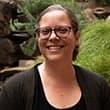This course is part of MathTrackX.
This foundational course, part of the MathTrackX XSeries Program, provides a comprehensive introduction to differential calculus. Students will explore the fundamental concepts of derivatives and their applications in understanding rates of change. Led by experts from the University of Adelaide's School of Mathematics, the course covers essential techniques for calculating derivatives of various functions, differentiation rules, and practical applications in motion, mechanics, and optimization problems. The curriculum emphasizes both theoretical understanding and practical problem-solving skills needed for STEM careers.
4.8
(6 ratings)
6,762 already enrolled
Instructors:
English
English
What you'll learn
Understand how derivatives relate to function slopes
Master techniques for calculating derivatives of polynomials
Apply differentiation rules to complex functions
Grasp the concept and applications of second derivatives
Solve real-world problems using differential calculus
Skills you'll gain
This course includes:
PreRecorded video
Graded assignments, Exams
Access on Mobile, Tablet, Desktop
Limited Access access
Shareable certificate
Closed caption
Get a Completion Certificate
Share your certificate with prospective employers and your professional network on LinkedIn.
Created by
Provided by

Top companies offer this course to their employees
Top companies provide this course to enhance their employees' skills, ensuring they excel in handling complex projects and drive organizational success.





There are 5 modules in this course
This foundational mathematics course introduces students to differential calculus, a crucial tool for understanding rates of change in various fields. The curriculum covers core concepts including derivatives and their relationship to function slopes, techniques for calculating derivatives of different functions, and practical applications in real-world scenarios. Students learn various differentiation rules, explore the concept of second derivatives, and apply their knowledge to solve problems in motion, mechanics, and optimization. The course combines theoretical understanding with practical problem-solving skills essential for STEM disciplines.
Introduction to differential calculus
Module 1
Differentiation of special functions
Module 2
The chain rule
Module 3
Applications of differentiation
Module 4
Assessment
Module 5
Fee Structure
Individual course purchase is not available - to enroll in this course with a certificate, you need to purchase the complete Professional Certificate Course. For enrollment and detailed fee structure, visit the following: MathTrackX
Instructors

7 Courses
Distinguished Mathematics Educator and Learning Innovation Expert
David Butler serves as Lecturer and Coordinator of the Maths Learning Centre and Writing Centre at the University of Adelaide, where he specializes in helping students develop effective mathematical learning strategies across all disciplines. His academic background combines pure mathematics, with a PhD in Finite Geometry, and educational expertise through a Graduate Diploma in Education. As a former high school mathematics teacher, he brings practical pedagogical experience to his university role. His innovative approach emphasizes the integration of play and artistic elements in mathematical education, making complex concepts more accessible to students. At the Maths Learning Centre, he focuses on developing students' mathematical thinking skills and confidence, working across diverse academic disciplines to support students in mastering course-specific mathematical concepts. His passion for mathematics education extends beyond the classroom through his active engagement in mathematical education communities and his development of creative learning resources.

5 Courses
A Pioneering Statistician Bridging Applied Mathematics and Forensic Science
Melissa Humphries serves as Senior Lecturer in Statistics at the University of Adelaide, where she combines her unique background as a former chef with expertise in statistical analysis and cognitive modeling. After completing her PhD in Statistics and Mathematical Psychology from the University of Tasmania in 2017, she has built an impressive career spanning teaching and research. Her work focuses on applied statistics across diverse fields including forensic science, defense, psychology, and wastewater analysis, with particular emphasis on developing tools that support expert decision-making. As a lecturer, she coordinates multiple courses including second-year undergraduate statistics and has helped develop innovative online learning units in Bayesian reasoning. Her teaching portfolio includes Data Literacy, Statistical Analysis and Modeling, and Research Methods and Statistics. Recently named a Superstar of STEM for 2023-24, she advocates for making academia more accessible while maintaining an active research program in Bayesian inference, stochastic processes, and large dataset management. Her expertise extends to analyzing spatially and temporally autocorrelated data, contributing to fields ranging from astrophysics to forensic anthropology, while her background in psychology enhances her ability to communicate complex technical concepts to diverse audiences.
Testimonials
Testimonials and success stories are a testament to the quality of this program and its impact on your career and learning journey. Be the first to help others make an informed decision by sharing your review of the course.
Frequently asked questions
Below are some of the most commonly asked questions about this course. We aim to provide clear and concise answers to help you better understand the course content, structure, and any other relevant information. If you have any additional questions or if your question is not listed here, please don't hesitate to reach out to our support team for further assistance.



